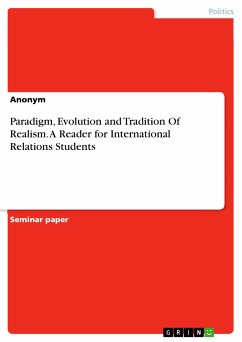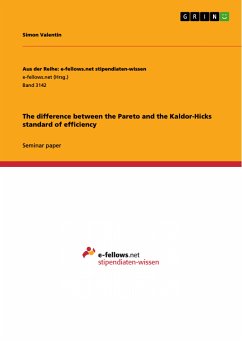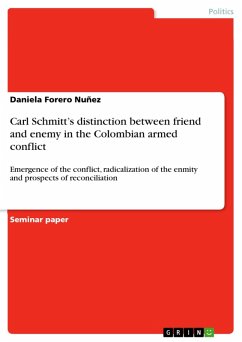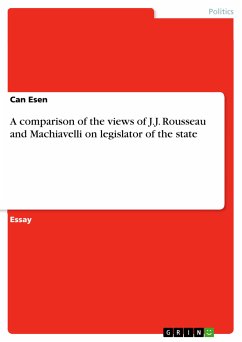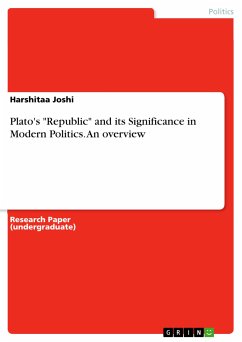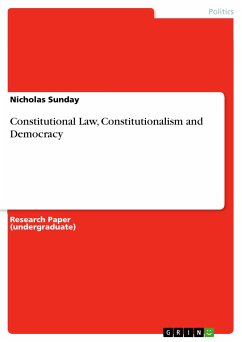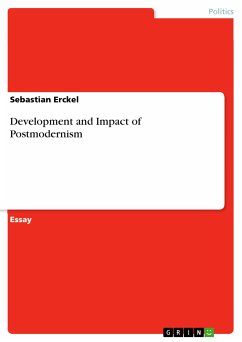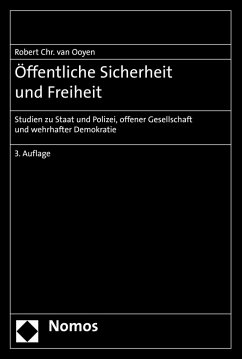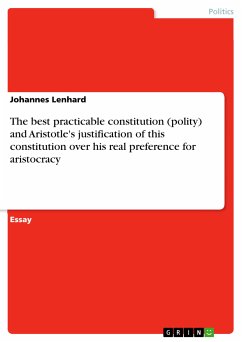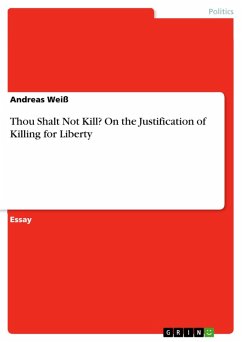
Thou Shalt Not Kill? On the Justification of Killing for Liberty (eBook, PDF)
Sofort per Download lieferbar
Statt: 15,95 €**
13,99 €
inkl. MwSt. und vom Verlag festgesetzt.
**Preis der gedruckten Ausgabe (Broschiertes Buch)
Alle Infos zum eBook verschenkenWeitere Ausgaben:

PAYBACK Punkte
0 °P sammeln!
Essay from the year 2008 in the subject Politics - Political Theory and the History of Ideas Journal, grade: 1,7, University of Birmingham (Department of Political Science and International Studies), course: The Theory and Ethics of Terrorism and Political Violence, language: English, abstract: "Thou shalt not kill" (Exodus 20: 13). The fifth commandment puts the highest maxim of pacifism into words. In pacifism this maxim is even higher in value than one's own life. The core question is whether there can ever be a justification of the use of violence to prevent or reduce existing violence. Th...
Essay from the year 2008 in the subject Politics - Political Theory and the History of Ideas Journal, grade: 1,7, University of Birmingham (Department of Political Science and International Studies), course: The Theory and Ethics of Terrorism and Political Violence, language: English, abstract: "Thou shalt not kill" (Exodus 20: 13). The fifth commandment puts the highest maxim of pacifism into words. In pacifism this maxim is even higher in value than one's own life. The core question is whether there can ever be a justification of the use of violence to prevent or reduce existing violence. The realities of our world ceaselessly confront mankind with the cruelty of violence - examples of reckless and random killing without ruth in Nazism, Stalinism, or southern Sudan, Liberia, Congo, Middle East and many more do not need further explanation. In facing the reality of violence and acknowledging the ethical dilemma of situations of inevitable loss of life this essay presents a deontological approach to the justification of killing for liberty whereby the act of liberation has to be aimed at a constitution of political freedom and its chosen means must not violate humanity. This conditional limitation of killing for the sack of liberty is approached within three parts. Part I deals with the deontological quality of liberty justifying violent acts of self-defence; part II deals with this liberalising use of violence by examining its limits in the fight against oppression and part III defines valid targets of killing for liberty.
Dieser Download kann aus rechtlichen Gründen nur mit Rechnungsadresse in A, B, BG, CY, CZ, D, DK, EW, E, FIN, F, GR, HR, H, IRL, I, LT, L, LR, M, NL, PL, P, R, S, SLO, SK ausgeliefert werden.




